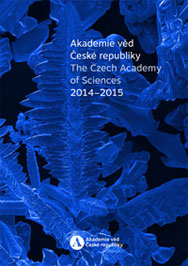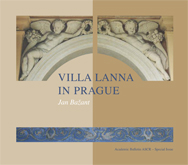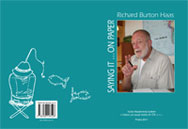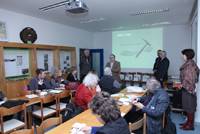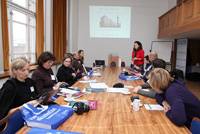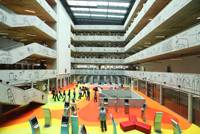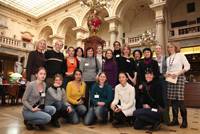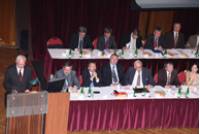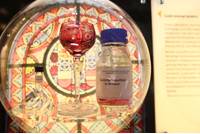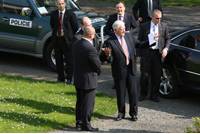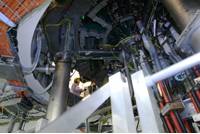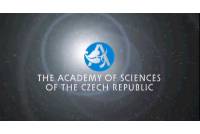
Academic bulletin 06/2008
RESUMÉ
"8" ANNIVERSARIES IN CZECHOSLOVAK HISTORY
Whitsun confrontation in 1848
Bloody Whitsuntide in the middle of June 1848 is perceived as a milestone in revolutionary years of 1848–1849. In the face of former Marxist glorification of "barricade heroes", contemporary historiography considers this event as tragic moment that did not aid Czech national politics.
TOPIC OF THE MONTH
The Learned Society the Czech Republic
The two-day General Assembly of The Learned Society of the Czech Republic took place in Hall of Patriots of Carolinum on May 19–20. The goals of the Society are to encourage the free development of science in all its aspects, to disseminate scientific ideas and concepts to the general public, to awaken a thirst for and delight in scientific knowledge within society, to support the enhancement of the level of education and a creative, rational and humanly responsible climate in the CR. On the occasion of General Assembly, Prof. František Šmahel from Center for Medieval Studies and Prof. Antonín Holý of the Institute of Organic chemistry and Biochemistry AS CR were bestowed the Medal of the Learned Society of the Czech Republic for their development of science. A Scientist Award was awarded chemist Prof. Miloslav Frumar of University of Pardubice in Pardubice and Prof. Eduard Maur from Charles University. The Junior Scientist Award was given to Dr. Jana Humpolíčková from Josef Heyrovský Institute of Physical Chemistry and doc. Marta Štefánková of the Mathematical Institute in Opava. Grammar School Student Awards were presented to 13 students from Czech high schools.
NEW PROJECT
The Centre of Translational Biomedicine
The Institute of Experimental Medicine ASCR is the initiator of the Centre of Translational Biomedicine, Terezín–Litoměřice that should begin operations in 2010–2013 with the financial support from the EU structural funds. The new center, including application, will interconnect research across several modern medical fields.
SCIENCE AND RESEARCH
Dog: at our service
It is said that dog genome has 2 385 199 138 base couples and 20 439 genes which is less than man. It has been described as having about 2,5 million polymorphisms which give us knowledge about more than 400 various kinds of dogs.
Interspecies embryonic stem cells
Present medicine considers the embryonic stem cell to be a great hope for various immedicable illnesses. However that topic includes lot of biological and ethical problems that need to be answered.
FROM BRUSSELS
The Innovative Medicines Initiative (IMI): First Call
IMI is a unique Public-Private Partnership (PPP) between the pharmaceutical industry, represented by the European Federation of Pharmaceutical Industries and Associations (EFPIA), and the European Communities represented by the European Commission. The First Call of the IMI Joint Undertaking was launched by European Commissioner for Science and Research Janez Potočnik and EFPIA President Arthur Higgins on April 30.
Unique Registration Facility (URF)
CORDIS, a new service Unique Registration Facility (URF), was launched on April 27. It will facilitate the preparation of grant agreements between participants and the European Commission. Thanks to the new service, participants in the Seventh Framework Programme (FP7) and other programmes managed by the Research Directorate General will no longer have to submit their legal and financial information each time a new grant agreement is in the pipeline. Once participants have been validated by the European Commission’s central validation team for their existence as legal entities and their legal status, they will only have to submit their Participant Identification Code (PIC).
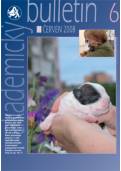

 Česky
Česky


